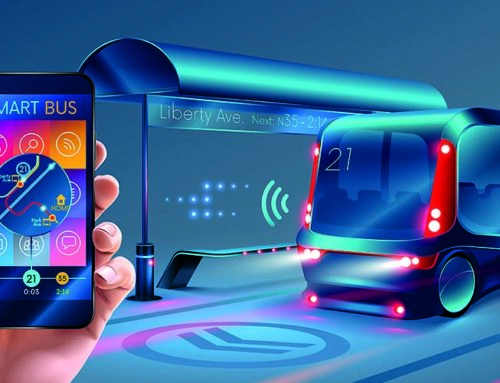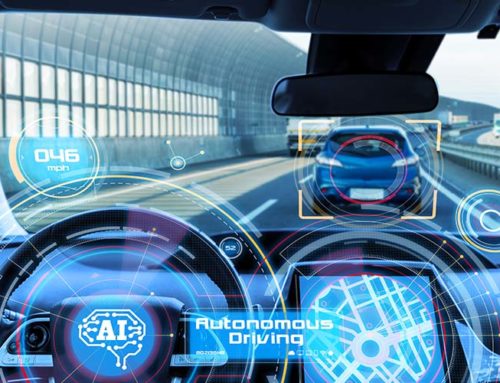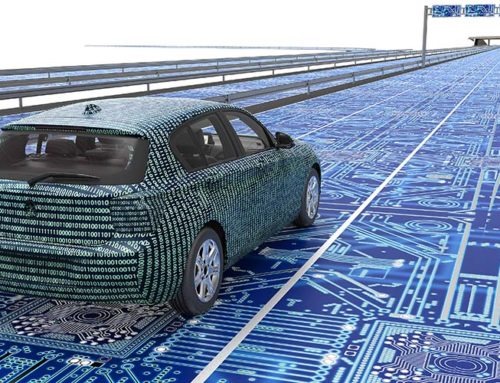The World Health Organization has listed the Middle East and North Africa (MENA) Region as the world’s most unsafe place to drive. In an attempt to improve their road safety record, the region is turning to autonomous vehicle technologies.
Dubai, and the UAE as a whole, has already laid out the necessary groundwork to become a world leader in the autonomous mobility space. The emirate is already trialling self-driving technology, and as the Dubai World Challenge For Self-Driving Transport approaches, Dubai is shaping up to become the preeminent testing site for autonomous vehicles in the MENA Region.
His Highness Sheikh Mohammed bin Rashid al Maktoum, Vice President and Prime Minister of the UAE and Ruler of Dubai, intends for Dubai to lead the autonomous vehicle initiatives through his strategic vision of having “25% of all trips in Dubai to be smart and driverless by 2030.” This city target means “one in four UAE residents will be using a driverless car by 2030.”
The acknowledgment of the importance of self-driving and autonomous vehicles will usher sweeping changes into the MENA Region. As a catalyst for change, autonomous vehicle technologies will have wide-ranging implications for technological, economic, and social developments.
Gaining an Advantage
Countries and states first to market self-driving and autonomous vehicles will gain a competitive advantage. Being a leader in the future of mobility enables more businesses, from manufacturing and tech, to compete globally.
A leading position also results in a significant source of domestic revenue for MENA countries involved. New industries will be created, and even sectors not directly involved will benefit from the new mobility landscape.
For a region once heavily dependent on oil exports, autonomous vehicle technologies seem to represent gloom. After all, autonomous vehicles will either be a hybrid or fully electric. As more driverless cars take public roads, oil demands will decline significantly.
But as studies show, disruption in the oil industry is already occurring. While petrochemicals continue to drive growth in global oil demand, in the automotive industry, the rise of electric vehicles and improvements in fuel efficiency alongside other technological advances will result in a structural decline for oil demand in the next decade.
For oil-producing states like Dubai, this decline represents a slump in its traditional growth engines. But this slump means greater economic expansion. The emirate maintains its headline economic growth, remaining a competitive hub for sustainable business growth.
Autonomous vehicle technologies represent a new sector in the sustainable business industry. With autonomous transportation expected to be worth US$77 billion by 2035, Dubai and other domestic players in the region are set to take a leading position in this new burgeoning sector.
More Benefits of Autonomous Transport
The commercialization efforts of driverless vehicles and the economic growth they bring are not the only benefits of autonomous technologies.
Road safety has been a primary concern of governments in the MENA Region and the Gulf Cooperation Council. A move towards automated transport will not only address road safety concerns, but also ease traffic congestion.
The region already has the largest self-driving public transportation system in the world in the Dubai Metro. Considerable progress in achieving further self-driving functionalities will see a comprehensive set of public transport services, from ride-sharing services to marine transport.
This will transform the social lives of residents in the MENA Region. The expected outcome of an autonomous transportation strategy include:
- Improved productivity
- Improved road safety
- Increased public transport efficiency
- Decreased cost of mobility
- Decreased pollution
But this multi-modal transportation strategy extends further than public transport. Across the private vehicle sector, driverless vehicles will contribute to less traffic on the road, cut down the number of roadway crashes, and reduce travel which will result in improved productivity.
More passenger free time and greater efficiency on the road will create a more enhanced life, generate greater social value, and improve the business experience. This means improvements in overall quality of life and happiness for MENA residents.
Wide-scale deployment of self-driving and autonomous vehicles offers more personal freedom. A journey that is seamless, safe, and worry-free will allow people with mobility issues like the elderly, the young, and those with disabilities to enhance their independence.
And because automated vehicle technologies are built to be as efficient as possible, automated driving systems can positively affect residents’ pocketbooks. Reductions in the cost of insurance, accidents (legal fees, medical bills, vehicle repair, etc.), and other vehicle-associated costs (parking, maintenance, fuel, etc.) mean greater financial gains for MENA residents.
What’s more, with economies of scale, residents who do desire to own a private autonomous vehicle rather than participate in ridesharing programs or public transportation can do so at an affordable price.
Supporting a Bright Future
Recent advances in autonomous vehicle technologies from a manufacturing and tech standpoint has accelerated the prospect of autonomous vehicles (AVs) proliferating on public streets. This acceleration in development, testing, and deployment of AVs have many industry experts predicting the adoption rates of this new mode of transportation.
Nurturing the burgeoning autonomous vehicle technology requires considerable support from institutions, policymakers, and the private sector. But most importantly, it requires public trust.
The recent fatal Arizona crash which involved a self-driving car has invariably diminished public trust surrounding the safety of autonomous vehicle technology. Other safety concerns such as cybersecurity risks will also greatly influence the pace of technology.
Governments and industry leaders will have to come together to develop a legislative framework to ensure that a new global standard for autonomous safety is ever-present.
As it stands, any projections of adoption rates are prone to significant inaccuracies. This is because several factors such as legislation, cybersecurity risks, and public perception greatly influence the pace of technology.
Despite this, the widespread anticipation of autonomous vehicles has many governments recognizing its importance. The MENA Region is attempting to become an early adopter of AVs and gain competitive advantage by becoming a preeminent testing site for the benefits of AVs.
Through its efforts, the MENA Region is well-positioned to secure its place as a world leader in the autonomous mobility space. Countries like the UAE serve as an example of how to prepare a region for a new age of autonomy.
And with autonomous transport exhibitions like the upcoming Dubai World Challenge For Self-Driving Transport, the MENA Region is centering itself as the preeminent testing site for the benefits of AVs. Register for the event today.
Congress
A global 2-day conference that will raise public awareness of modern and future transport by identifying the impact of technology on investments and transport strategies.
Exhibition
A cutting-edge exhibition showcasing the future of self-driving vehicles. The Dubai World Congress for Self-Driving Transport Exhibition is the essential place to attain key decision makers’ attention, and to meet your target audience.
Challenge
The first-of-its kind, multi-year international challenge designed for industry leaders, start-ups, and academia tackling the transport challenges faced by global cities.







